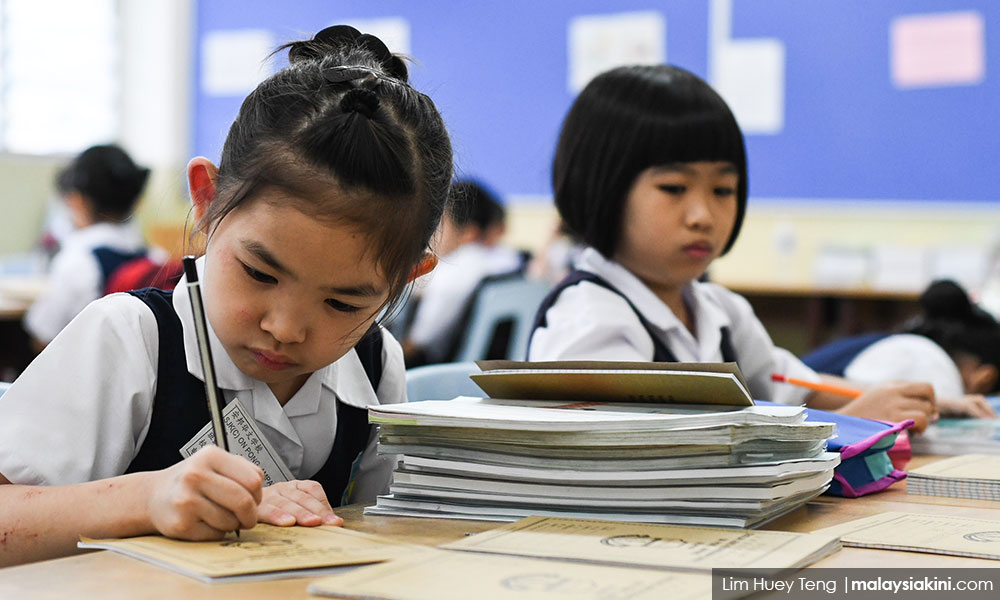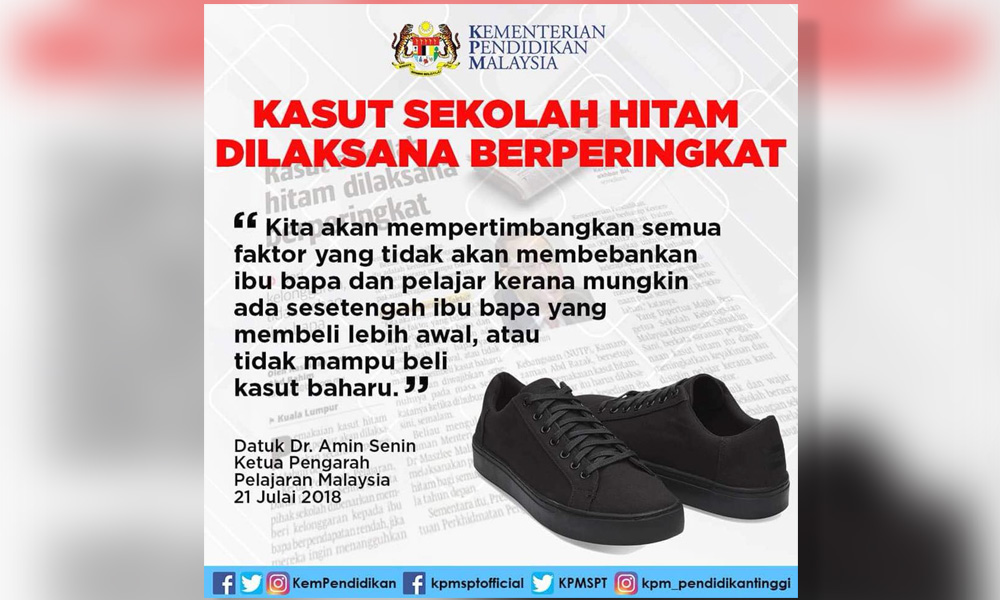ADUN SPEAKS | The change of white school shoes to black as announced by Education Minister Maszlee Malik was greeted with very mixed reactions from the public. Some of the criticisms, especially from several online portals, were extremely harsh and hostile. As a parent and a lawmaker, I welcome the decision, and think it is long overdue.
There are many problems with children using white school shoes. In fact, many private schools and other countries like Indonesia and Thailand have opted for black school shoes instead. White shoes seemed to me a peculiar mistake and legacy from a bygone era.
There are many who argued against changing to black school shoes. However, most of them do not see the big picture of things or take into account the changing world.
School shoes meant to protect feet
First and foremost, the argument put forth is that the colour of shoes used by students in school should be the least of our concerns and we should concentrate on more important policies to raise the standard of education.
Isn’t it amazing that these critics cannot figure out that the time spent washing, drying and white chalking the shoes could be better used by the children to read a book instead?
Thirty minutes a week, 43 school weeks a year, multiplied with the total primary and secondary student population of 4,772,995 students in 2017 alone will add up to 102.6 million hours. That is 11,714 years equivalent of reading time which could raise our education standards.

The second most common argument is that washing shoes and keeping them white would instil discipline in children. This argument is flawed as students with the cleanest, whitest pairs of shoes are likely to be from rich families and do not wash their own shoes.
Children can learn discipline washing their own plates, washing and ironing their own clothes as well as tidying up their own rooms. Shoes are not there to show discipline, but meant to protect the feet of our children, especially those that need to walk a treacherous route to schools in the rural areas.
Unfortunately, it has got to the point that the rural children are well known to take off their only pair of shoes when walking to schools so they don’t get dirtied. How ridiculous can this be? How cruel can we be as parents and educators to be indifferent and tolerate such a twisted sense of discipline and risk injuries to poor children’s feet?
Parents will save money in the long run
The third argument is that all the current white shoes would go to waste, and it would be a burden to the poor families to have to buy new shoes.
Maszlee had given a grace period until 2020 as the transitional period to smooth things out, saying the plan would be rolled out in staged beginning next year. In the long run, the parents will save money because black shoes require less scrubbing and washing and thus last longer, with less need to buy new shoes.

The parents will spend less on water usage, detergents and white chalk.
In fact, black shoes can be used for after-school and co-curricular activities. So poor students only need to buy one pair of shoes for all occasions and not worry about going to school with dirty-looking shoes. They also don’t have to carry the second pair of shoes to school for other school activities with already heavy school bags.
The fourth argument is that black shoes absorb heat and are not suitable for the Malaysian climate. This does not stand against the real world evidence as most Malaysian adults, Thailand and Indonesian students wear black shoes without getting their feet burnt.
Saving the environment
The final argument often made is that white shoes are cleaner and healthier because they get washed every week. This thinking is so out of date and out of place with the latest evidence on environmental issues.
Even hotels encourage guests not to ask for clean towels every day to reduce unnecessary washing. It becomes a really big environmental and health issue when you think of the amount of water and detergent used in washing white school shoes.
Five litres per students mean 23.86 million litres of water every week, and more than 1 billion litres of water each year is wasted, not to mention polluted with highly poisonous detergent, which is released into the environment.
On top of that, tens of millions of bottles of white chalk are also used. In the end, these pollutants and empty containers are discarded. To look clean and poison ourselves is the highest of follies.
In summary, the change to black school shoes could help save time for our children to concentrate on their studies, as well as save our environment from more pollution, for a better, healthier future. It will also save parents' money.
The minister’s policy change was the right decision, and it can make a world of difference.
DR KO CHUNG SEN is the state assemblyperson for Kepayang.
The views expressed here are those of the author/contributor and do not necessarily represent the views of Malaysiakini.

